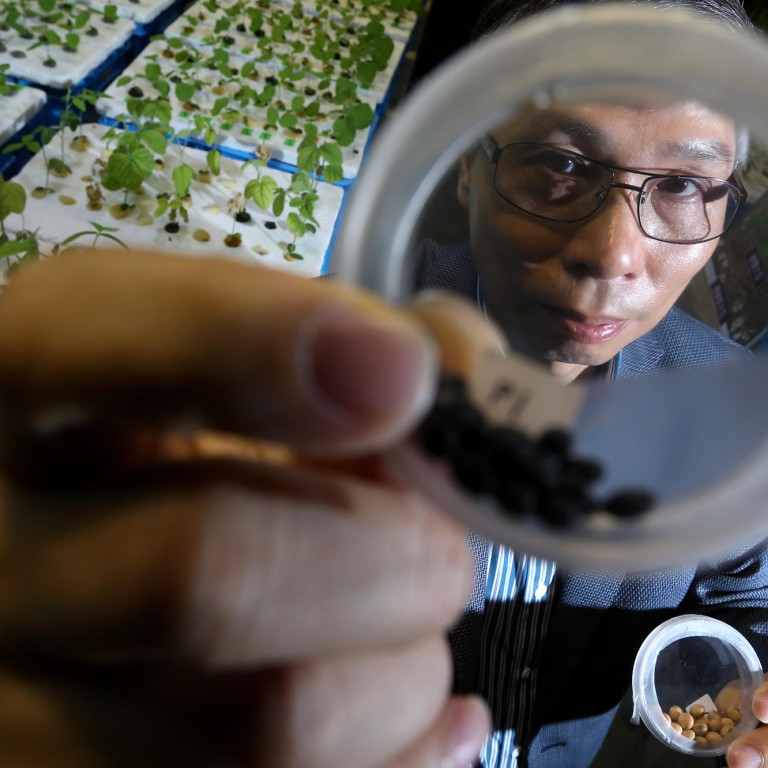
Gene for salt-tolerant soybeans discovered by Hong Kong professor
Lam Hon-ming hopes the development can help people grow crops on salty land
At first glance, the black-coloured wild soybeans in Professor Lam Hon-ming's hand don't seem particularly special.
Yet they contain a gene that can potentially benefit the agricultural industry - a gene that enables soybeans to become tolerant to salt.
"Salinisation is a huge problem," said Lam, the director of Chinese University's centre for soybean research, referring to the process of salt leaching into the soil and destroying crops. "There are over 900 million hectares of salt-affected land worldwide."
With a rising population, the world is experiencing a shortage of arable land and of what there is, more than 60 per cent suffers from salinisation.
Salt-tolerant soybeans could help alleviate soil deterioration and increase productivity, Lam said.
After examining the effects of salt on a species of wild soybeans and cultivated soybeans, Lam and his team found that some of the wild varieties exhibited higher salt tolerance than the cultivated ones.
In an attempt to locate the gene that causes salt tolerance, the team crossbred the two species for seven generations - over a period of seven years - to create a stable genetic population of beans.
"We bred 500 [soybean] offspring," Lam said. "We chose 96 lines from the 500 for detailed genomic analysis."
In the following three years, they collected field and greenhouse data from the beans and used genome-sequencing technology to locate the chromosome region that contained the gene for salt tolerance.
After identifying one gene that manifested itself in all the salt-tolerant beans yet mutated in all the salt-sensitive ones, they inserted it into salt-sensitive soybean roots and tobacco cells and found that the gene caused them to become more tolerant to salt.
Lam said it would be much quicker to genetically modify the soybeans to make them salt tolerant, but the regulatory process for approving genetic modification in China was still "unclear".
"There is too much controversy about GM technology today, so we [are] taking a longer route," Lam said, adding that he wanted to work with as many farmers as possible to begin cultivating salt-tolerant soybeans.
Two institutions - in northeast and northwest China - have expressed interest in using Lam's methods.

